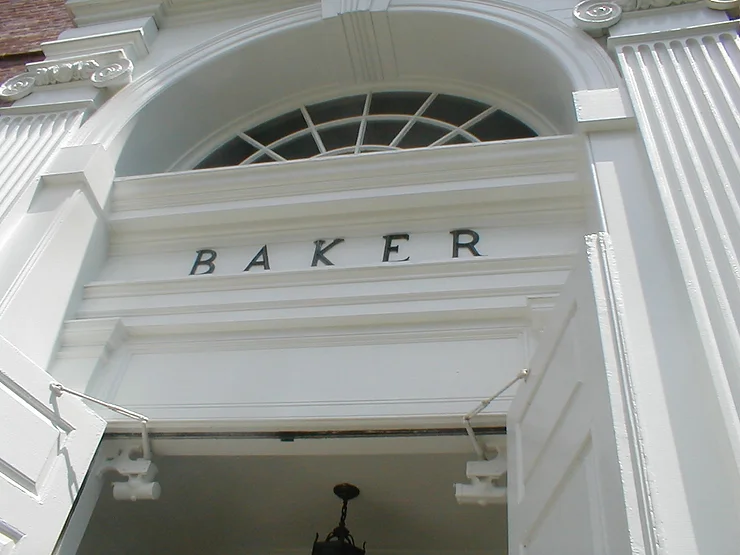Pierre is a leading college and graduate admissions consultant with extensive experience in education and entrepreneurship. His advice has been featured on Forbes.com, U.S. News, CNN Business, the Washington Post, ABC News, Business Insider, and more.

***Interested in reading our Dartmouth College supplemental essay guide for the 2020-2021 application cycle? Click here! https://www.hceducationconsulting.com/post/how-to-write-the-dartmouth-college-supplemental-essays***
Welcome to the Dartmouth College supplemental essay prompts for the 2019-2020 application cycle! Here’s everything you need to know.
(You can refer to the Dartmouth College website if you want to see how exactly they’re presenting their essay prompts for this year.)
Dartmouth’s writing supplement requires that applicants write brief responses to two supplemental essay prompts as follows:
In other words, answer question 1, and answer one of the questions provided under “2.”
1. Please respond in 100 words or fewer:
While arguing a Dartmouth-related case before the U.S. Supreme Court in 1818, Daniel Webster, Class of 1801, delivered this memorable line: “It is, Sir… a small college. And yet, there are those who love it!” As you seek admission to the Class of 2024, what aspects of the College’s program, community or campus environment attract your interest?
We get it, Dartmouth—you didn’t want New Hampshire to turn you into a public school back in the early 19th century, and you made it into this whole big thing, and you won in court. But this pompous quote, which you’ve been using for years, does nothing to help your applicants respond to the simple question: “Why Dartmouth?” (No disrespect—Dartmouth is a terrific school.)
This is a typical “Why This College” question, but your response has to be very, very short. Do your research on Dartmouth and make sure you come up with some concrete examples of why Dartmouth is the place for you, and don’t just say that you wouldn’t mind being in the middle of nowhere for four years. Make sure your reasons for wanting to attend Dartmouth are in line with your own personal narrative—in other words, make sure they’re authentic, and that you’re not simply pandering to that small college that some love, Sir.
2. Please choose one of the following prompts and respond in 250-300 words:
A. The Hawaiian word mo’olelo is often translated as “story” but it can also refer to history, legend, genealogy, and tradition. Use one of these translations to introduce yourself.
The great thing about this question is that it’s so open ended it can be about almost anything. You’ve already written your Common App essay, but hopefully you have another subject for a personal story up your sleeve, and now would be the time to use it. Use this opportunity to discuss a personal story, legend, genealogy or tradition. In other words, talk about whatever you like, as long as it’s personal and uniquely you. Use your restricted word-count wisely: stick to one anecdote.
B. In the aftermath of World War II, Dartmouth President John Sloane Dickey, Class of 1929, proclaimed, “The world’s troubles are your troubles…and there is nothing wrong with the world that better human beings cannot fix.” Which of the world’s “troubles” inspires you to act? How might your course of study at Dartmouth prepare you to address it?
There’s a question like this on the Common Application that asks about a problem you’d like to solve—no matter the scale. In my personal opinion, these kinds of questions should be avoided when possible. And since this question for Dartmouth is not mandatory, I’d suggest you avoid it.
The way the question is phrased is simply too much to ask of a 17-year-old, or a 27- or 37- or 47-year-old for that matter. Many of the 2020 presidential hopefuls end up sounding a little phony when they try to speak to the “the world’s troubles” and they are far older and more experienced than college students. And they have professional speech writers. You may be a “better human being” (than what?), but the fact is that you don’t need to have solutions to the greatest problems facing our world to get into Dartmouth. You’re trying to get into college, not run for president. It is extremely difficult to tackle subjects like climate change, the threat of nuclear war, the patriarchy, systemic racism—take your pick—in a meaningful way in 250-300 words, as a high school student. Students who attempt these grand problem questions often sound like they’re parroting NPR, and their responses generally sound like amateurish editorials rather than authentic personal statements. Which is no wonder: questions like these set them up for failure.
If you do opt for this question, make sure it’s personal. Climate change affects us all, but unless you live on a melting iceberg, I wouldn’t recommend you propose an alternative to the Green New Deal here. Unless you have accomplished incredibly uncommon things in the realm of activism, I’d choose to talk about something else.
C. In The Painted Drum, author Louise Erdrich ‘76 wrote, “… what is beautiful that I make? What is elegant? What feeds the world?” Tell us about something beautiful you have made or hope to make.
This is another ambitious Dartmouth question. It may be a good one for some of our student-entrepreneurs. If you created a non-profit organization that feeds the world, either literally or metaphorically, you’ve got an easy answer. This being said, remember never to repeat yourself—you’ve already got your non-profit itemized on your activities list, so you can’t simply say, “I created a beautiful, elegant non-profit that feeds the world.” You’ll need to tell a specific story related to your project. Think very small here, and tell a specific anecdote in detail.
A question for you: what did creating something beautiful mean to Louise Erdrich? Google her. (Google anyone specifically referenced in a prompt).
My personal recommendation would be to talk about something you have made rather than something you hope to make. Don’t say, for example, that you’re going to build a settlement on Mars or eradicate death through transhumanism. Once again, you don’t have to be a Tony Stark-style billionaire superhero to get into Dartmouth. If you choose to respond to this question, focus on the really exceptionally change you’ve made in the world. This is a good opportunity to exercise some self awareness: your last-minute victory against a competing field hockey team and the app you made a ton of money off of are great accomplishments, but ask yourself if they made the world more beautiful, if they fed the world.
D. “Yes, books are dangerous,” young people’s novelist Pete Hautman proclaimed. “They should be dangerous—they contain ideas.” What book or story captured your imagination through the ideas it revealed to you? Share how those ideas influenced you.
Again, google Pete Hautman.
Lots of colleges ask for supplementals on books or films that influenced you, and these can be great opportunities to show something about your personality and tastes. I’ve said it before and I’ll say it again: don’t write about Fahrenheit 451 or anything like that. I know, I know, it’s tempting: it’s a book about dangerous ideas in books and maybe cautionary tales like these are more relevant today than ever before, but trust me—you and I are not the first to make the connection, and we won’t be the last. Don’t write about required reading or books that high school students are generally required to read. Choose this topic if you’ve got a truly uncommon book in mind and a truly uncommon way to approach the subject of dangerous ideas.
E. “I have no special talent,” Albert Einstein once observed. “I am only passionately curious.” Celebrate your curiosity.
You may be thinking, “Great, I have no special talent either!” But despite what old Albert seems to be saying, this question really isn’t about not having any talents—he did have lots of talents, and the only way you’ll be able to answer this question to satisfaction is if you can not only describe your curiosity, but also say what you’ve done with it.
This is a great question for our student-entrepreneurs: what lack did you see in your community? What was missing and how did you find a solution to fill the gap? To answer this question, you don’t need a special talent, but you need the kind of curiosity you can demonstrate and quantify. If you haven’t made a serious splash in something, this question probably isn’t the best for you. And that’s fine—there are five others.
F. Labor leader Dolores Huerta is a civil rights activist who co-founded the organization now known as United Farm Workers. She said, “We criticize and separate ourselves from the process. We’ve got to jump right in there with both feet.” Speak your truth: Talk about a time when your passion became action.
This question isn’t so different from a number of the other prompts here. Substitute “passion” for “curiosity” and we’re back to Einstein—for “beauty” and we’re back to Erdich. The twist here is that the prompt sets you up for a more specific, social-justice-y type of response. (Once again: google Dolores Huerta.) By now you’re probably familiar with my views on these “change the world” kinds of questions. If you’re Marcel McClinton and running for Houston City Council at age 17, my hat goes off to you—you’ve got a good shot at Dartmouth through this question. If you’re like most of the kids who get into Dartmouth every year and you haven’t had a role in transforming the national debate around gun reform, maybe sit this one out.
As always, our college admission consultants are here to help. Don’t hesitate to reach out.




